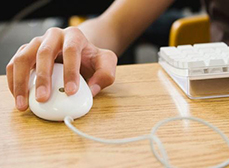



Science is one of the most important disciplines taught in school. This subject contains elements of biology, physics and chemistry and helps students understand more about themselves and the world they live in. For many prominent inventors, engineers and medical doctors, school science classes were among the things that helped determine their inclinations and career paths. Science homework is usually focused on teaching children how to:
Although studying science can be interesting, it can pose many challenges. One of them is that it requires understanding rather than memorization and experience rather than theoretical knowledge. That’s what all the experiments are about. Students need to learn to be open to new facts and findings, to understand that nature has no boundaries, and that human knowledge has been changing and developing.
To achieve this, many teachers give young learners more homework than just reading “chapters 1 to 3”. Very often, students are encouraged to conduct experiments like growing salt crystals or making clouds in a jar; to write down the steps they took and bring a photo of the results. Whereas some may be excited over this perspective, others can get frustrated if they fail to accomplish the assignment or if they appear to have different results.
Fortunately, there are some tips on how to solve homework issues as quickly and easily as possible. Here are some simple yet effective steps to follow:
Home assignments like experiments or nature observation require time. There’s no way to do them overnight, so don’t put things off till the last moment.
Very often, students rush to start an experiment without reading the theory. No wonder many of them deliver poor results. Do some research and find some extra information on the subject you’re going to study before doing your science assignment.
Don’t be afraid to go to your teacher to ask questions. Remember that you need to have a clear picture on what to do before you start.
Sometimes students get disappointed if their experiment result is different from somebody else’s result. However, a different result doesn’t mean “no result”. Don’t hesitate to bring your result to class and to discuss it.



